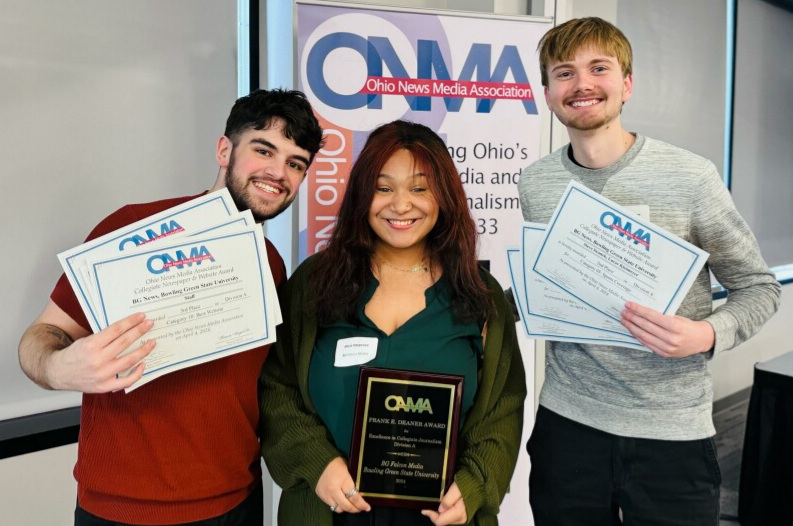Student-instructor evaluation forms are taken as seriously as the students who complete them.
According to Rodney Rogers, dean of the college of arts and sciences, instructors who are not tenured are reviewed once a year by their respective department chairs, as well as being subject to a sit-in peer evaluation during one of their classes. Students play a role in these annual reviews by means of the evaluation forms they complete at the conclusion of each semester.
These forms are considered in collaboration with many facets of the instructors’ responsibilities, such as the research they do outside of class, their involvement with the University community, their adaptation and utilization of new techniques and technology and the status the instructor currently holds at the University.
If problems are found during these reviews, steps are taken to ensure they are brought to the attention of the instructor. Further review is then done in subsequent years to see to it that the instructor has made attempts to address the concerns. Failure to comply may result in non-renewal of contracts or denial of tenure, depending on the status of the instructor at the time.
Senior Bridgett Betka feels that students’ opinions are not being given their due weight in these reviews.
“There are some teachers who aren’t doing the best teaching and other teachers know it, and they aren’t doing anything to better themselves,” she said, “if the dean and everyone says they are taking [student evaluations] seriously, I feel like I would have seen more changes in professors than I have.”
Rogers said every evaluation is read, and when completed properly, are one of their greatest tools in shaping the direction and bettering the experience of a class.
“Student evaluations are important because they are from a student experience perspective,” he said, “that certainly provides some very direct comments about what is right or wrong with the course.”
Often the problem with student evaluations, Rogers said, is students not taking the time to include constructive comments in the spaces provided. This is where students have the greatest opportunity to influence decisions and without these comments, he said, there is no direction shown. It may become known that a problem exists, but what it is and how to handle it, remains unclear. Rogers encourages all students to be as honest and detailed in their comments as possible.
Simon Morgan-Russell, dean of the college of arts and sciences, said misperceptions about the abundance of student disapproval for an instructor can lead to a false sense of being under-utilized.
“It is not uncommon, in one class,” he said, “to have one group of students who absolutely hate an instructor and another group who really like that instructor.”
No matter how well they are completed, student evaluations can only reach so far, serving as tools for review only toward instructors on one or multi-year contracts. Upon receiving tenure, instructors become somewhat insulated from evaluations and criticisms, with their tenure status granting them a strong degree of job-security — tenured instructors no longer undergo annual reviews.
Betka said a certain level of respect should be given to tenured instructors, but their teaching practices should not be free from review.
“They are good teachers for information regarding research they have done,” she said, “but they straight up don’t know how to teach.”
Betka recalled an experience she had with a tenured instructor in which her passion for a subject was curbed by the instructor’s presentation of the class, despite her enthusiasm going into it.
“I was like, ‘I’m really excited to take this class. I’m going to be learning a lot. Maybe this will give me that extra umph to say this is what I am doing after college;’ she completely ruined it for me,” Betka said.
Tenure, according to both Rogers and Russell, was created to protect instructors’ right to follow research which may be controversial without fear of being fired by their superiors because they disagree with them. As with any system, it has its pros and cons.
“In any profession there are some individuals who take their jobs responsibly. They come in and they give 110 percent, even when they don’t necessarily have to,” Russell said, “There are others who find ways to cut corners. You can see they aren’t pulling their weight, and they just kind of skim by.”
The status, prestige and process of obtaining tenure, Rogers said, is meant to reduce this occurrence.
“There are times when you have faculty that have tenure that are less responsive,” he said, “but you try to guard against that by making sure the process one goes through to get tenure, is a rigorous process.”
According to statistics from the University’s Office of Institutional Research, 50.9 percent of main campus instructors currently hold tenure.
To alleviate some of the problems associated with the policy, Russell expressed support for implementing some form of post-tenure review policy to be sure student voices continue to be heard, while protecting the academic liberty tenure was designed to preserve.
Senior Matt Arvan said students should be given a direct role in decisions on whether to review.
“On each evaluation, at the bottom, have a box that says: Do you recommend this instructor for post-tenure review?” he said, “If over a certain percentage of the class check that box, that’s a red flag right there.”

















